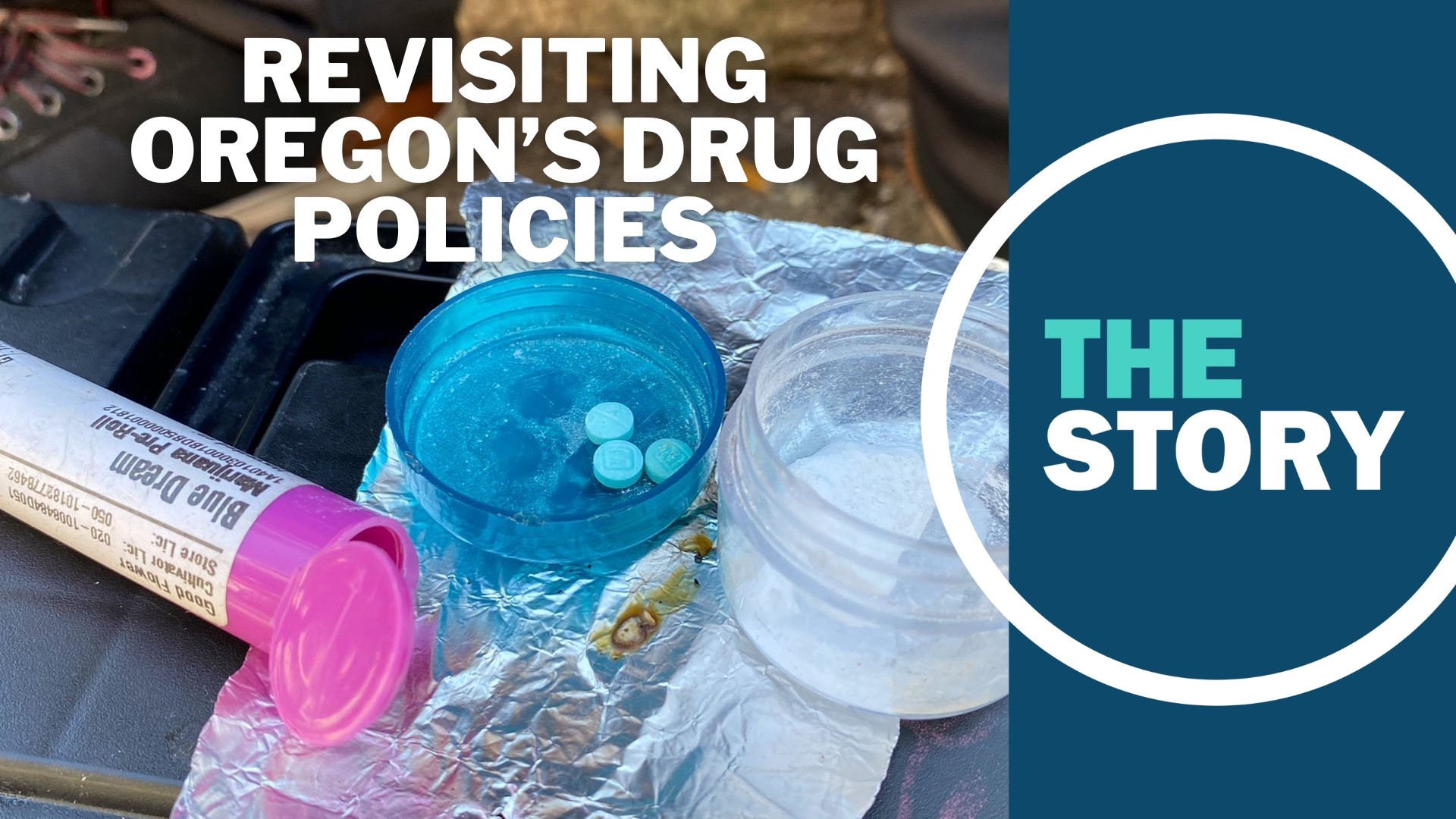PORTLAND, Ore. — In the past few years, Oregon has seen drug use and overdoses skyrocket, and many people have pointed the finger at Measure 110, which decriminalized user amounts of drugs. Lawmakers plan to take the issue up during a short session beginning in early February — but what, precisely, they'll propose is not entirely clear.
There is no shortage of ideas. Former state legislator and Republican gubernatorial candidate Christine Drazan wrote in an op-ed for The Oregonian on Wednesday that "Measure 110 must be repealed. Full stop." She proposed her own solutions to the growing drug crisis, including efforts to discourage drug use, prioritizing sobriety, going after drug dealers and expanding prevention programs for kids.
Most policymakers don't align with Drazan's uncompromising view, but it's difficult to find a proposal that doesn't involve some tweaks to Measure 110. Several others, including Multnomah County's District Attorney, think criminalizing public drug use is part of the answer.
The Joint Interim Committee on Addiction and Community Safety Response is a bipartisan group of lawmakers working on the state's addiction response. For the last several months, they've been hearing testimony from many different stakeholders who cross paths with drug users: law enforcement, jails, the courts, and people who work in treatment and outreach.
Some think there should be criminal penalties for drug use. Whether that happens or not, everyone seems to agree that there needs to be more support from the state of Oregon.
On Wednesday, committee held its last meeting before the session begins. They introduced three legislative concepts as committee bills — essentially bill drafts, as they don't have specific language for bills ready for release as yet — focused on the addiction crisis, behavioral health, and public safety.
The bulk of Wednesday's meeting focused on substance use prevention. They heard from Jon Epstein, a teacher and parent whose son Cal died in 2020 when he took a pill he bought off social media. It turned out to be a lethal dose of fentanyl.
Epstein told lawmakers that the state hasn't been doing enough to prevent drug use in kids.
"We have ignored prevention in this state for a decade. We've done nothing," Epstein said. "When we went around to look for places to land a fentanyl awareness and prevention curriculum, there was nowhere to take it. Nobody stood up after the Lund Report and said, 'Oh that's our problem, we own that, we'll fix it.' Not one group stood up and said, 'That's our problem.' Many pointed at it and said, 'That is a problem.' But there is no ownership for prevention in Oregon."
The Lund Report he referred to is a story from the health news outlet published in early March 2023 that demonstrated how Oregon's inaction left teens vulnerable to fentanyl. It detailed how youth addiction treatment programs have diminished in Oregon.
Lawmakers also heard from members of the Alcohol and Drug Policy Commission, a state agency tasked with improving the state's substance use services. They presented a 14-part list of recommendations for making changes to Measure 110, starting with prevention — they said the state needs to improve its infrastructure around drug use prevention, including having prevention coordinators in every county and tribe across the state.
They also said that the state needs to increase access to the medications that help people get clean, drugs like methadone, and increase funding for sobering centers. Lawmakers should increase access to recovery housing and sober living, peer support for people with substance use disorder, and culturally-specific recovery community centers.
The commission recommended a new strategy around harm reduction — things like the opioid overdose reversal drug naloxone, drug testing strips and syringe services — and called for a new plan for preventing and treating drug use in kids and teens by 2025.
To completely overhaul Oregon's response to drug use and treatment is a tall order for a legislative session that only lasts a few weeks, particularly when homelessness, housing and education also loom large. It's also a lot of moving parts that will need to work in disparate regions throughout the state.

